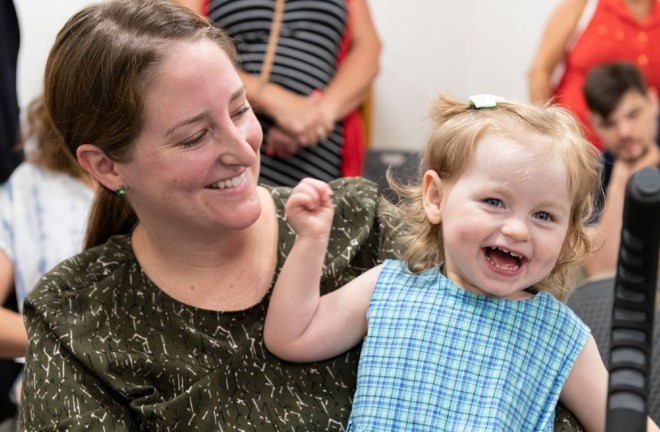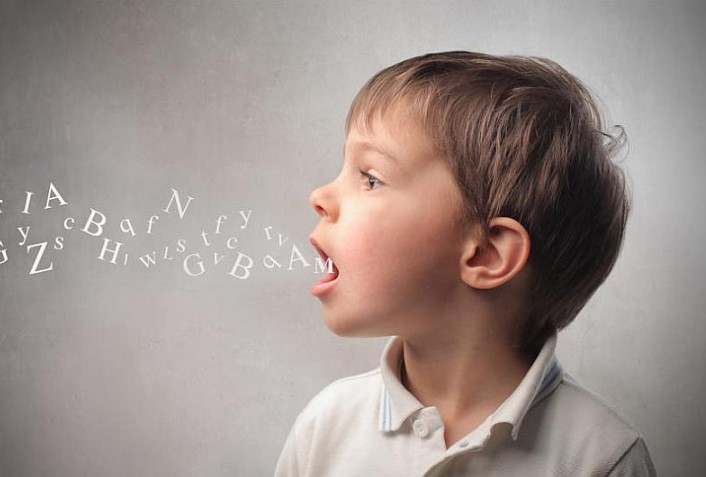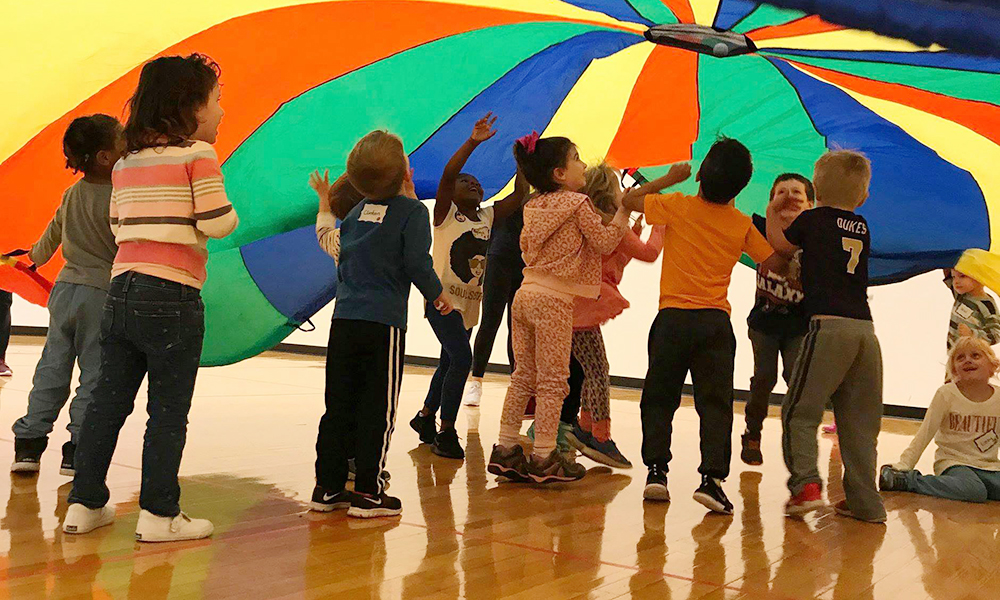COVID Parenting Is Reaching a Breaking Point

Parents know that winter is the season of sickness. Your kid will have approximately infinite colds. You, too, will have approximately infinite colds. Last winter, COVID precautions kept sickness at bay. But this year, school is in session, day-care colds are spreading fast, and the only cohort of people in America not yet eligible for COVID vaccination is our youngest children.
Aside from promises of clinical-trial data by the end of the year, the timeline on which children younger than 5 might be vaccinated is still unclear. The parents of these kids are staring down months more of carefully weighing the risks of COVID against the benefits of indoor cheer. My own child, now 20 months old, was born in March 2020, so my entire experience of parenting has been pandemic-inflected. As the cold creeps down the East Coast, where I live, and nudges the people around me inside, I have been thinking about how the responsibility and anxiety of navigating around this one infectious disease might linger longer for the parents of small children than for most other Americans.
Some days, the idea that my family will still have to be making these calculations far into 2022 feels impossible to grasp. How can it be that even after two years, I won’t be able to meet my friends and their kids at the aquarium, or a museum, or a pizza place without dedicating brain space to what we’re all risking? How are other parents handling this? As cases rise again and the season of sickness sets in, I asked that question to a small group of my Atlantic colleagues:
-
Julie Bogen, a senior editor on the audience team, who has a 20-month-old
-
Nick Catucci, a senior editor for newsletters, who has a 2-and-a-half-year-old
-
Daniel Engber, a senior editor on the Science, Health, and Technology team, who has a 2-and-a-half-year-old and a 5-year-old
-
Becca Rosen, a senior editor on the Ideas team, who has a 3-year-old and a 7-year-old.
All of us live in New York City or Washington, D.C.—places with high vaccination rates—and, as Atlantic employees, we’ve all been able to work from home throughout the pandemic. All of our kids are, for at least part of the week, going to school or day care (at least until an inevitable fever triggers pandemic-era policies that require kids to stay away and get tested for COVID). All of us understand that the risk of healthy kids getting severe COVID is relatively low, but we are still limiting our activities to some extent. As a rule, we avoid taking our kids to busy indoor places, and we’re generally still choosy about whom we invite over. We were joined by Natalie Dean, a professor of biostatistics and epidemiology at Emory University, who specializes in infectious-disease research and has, herself, a 4-year-old and an almost-2-year-old.
What follows is a transcript, edited for length and clarity, of our conversation about the risks we’ve taken, the risks we might take, and the pressing questions we now have about America’s approach to childhood sickness.
Sarah Laskow: I’m curious: What would change anyone’s COVID calculus at this point? For those of you with older kids, does having them vaccinated change anything at all?
Daniel Engber: My daughter had her first dose of the vaccine and is going to get her second dose in a couple of weeks. I got really excited about the idea of let’s set up new rules for the family. And then we realized we didn’t even have clearly delineated old rules.
I feel like some of our attitudes are shifting toward thinking about the state of community transmission—so if we come up with some new rules now, will they look different in a month if case rates are shooting up in New York City? That feels much harder to do. It’s a lot easier to think in terms of which or how many of us are vaccinated than to start thinking about these moving targets. Do we want to look by city, or county, or borough, or state? National rates? What should we be keeping track of? Or should we stop keeping track of anything and kind of abandon rules altogether?
Laskow: It seems to me like a lot of parents are thinking that way. Well, once my kid is vaccinated, then I can change my behavior. Short of that, I don’t know what to do. Julie and I both had kids right at the beginning of the pandemic, and I wonder, for you, Julie, is there anything short of your child getting vaccinated that you think would change your behavior at this point?
Julie Bogen: There was very briefly a period over the summer when people were getting vaccinated and mask mandates were still in place in Montgomery County when we were like, Oh, maybe we’ll take her to the grocery store. But right now, in part because of my husband’s job as a doctor who treats COVID patients, but also because of the notion of, like, Okay, well, if we do take a risk, and she gets sick or her day care closes, that’s another 10 to 14 days I have to be out of work, the disruption is so significant.
Also I feel so paralyzed by judgment of other people and parents if we were to get sick. You know, like, Oh, you guys got COVID? Do you know how you got it? Did you do something irresponsible to get it? I really can’t think of anything short of my daughter getting vaccinated that would change our behavior right now. I feel like I don’t know how to not blame myself if something went wrong.
Laskow: Natalie, does the availability of vaccines for older kids matter in any of these calculations?
Natalie Dean: Having the older kids vaccinated does matter in the sense that kids have a certain set of people they interact with, and that includes older siblings. Just having fewer opportunities for the family to be impacted by needing to isolate or quarantine, that will certainly help. Older kids are also just a big chunk of the population that will be less likely to get infected and less likely to transmit once they’re fully vaccinated. But it’s going to be a long time, maybe never, that we’re going to see case rates really go to zero. I think we just need to be realistic about that—this virus is going to continue to circulate for a while.
I also wanted to make a comment about this stigma. Because of the nature of the pandemic, there’s a lot of stigma about transmission, and I think we’re going to need to move past some of that as well. There’s not the same stigma about RSV or flu or these other respiratory pathogens, and they cause a pretty similar risk to kids. That would be another thing that, as we move forward, we need to grapple with.
Becca Rosen: I’ve been trying to make the case among my friends and to colleagues that getting COVID is not a sign of personal failure. We live in a society with illness, and we don’t blame people when they get flu. We have to learn to not see getting COVID as a moral failure. Because this is something we have to live with, and the truth is that we will all be exposed.
To go back to what Julie was saying, the practical disruption of a COVID infection to people’s lives is so much worse than with RSV or with flu because of the policies we have in place. So it seems like we’re in a spot where we really, really do need to update our policies for a COVID-endemic world. Especially with our testing infrastructure still really dysfunctional, even testing negative to return to school after a COVID exposure can mean days out of work for a parent. For a lot of parents, that’s just not tenable.
Dean: Part of living with the disease, too, is improving testing infrastructure in the way that we really need to get it to work. It doesn’t mean that testing needs to go away, but that it needs to be strengthened.
Engber: I feel like when my older daughter is fully vaccinated, it increases my urge to ignore or subvert some of the policies. I just wonder if other parents have had that thought too. Like, if she’s fully vaccinated and has a stuffy nose and it might be allergies, am I going to really adhere to the rules of her school’s screening process? I feel my attitude toward the policies and their legitimacy is changing in real time.
Rosen: I think the policy sometimes discourages people from testing. Because they don’t want to wait on a result or risk getting a false positive, which is just totally a perverse outcome.
Bogen: Especially because the tests take so long. And my daughter’s day care doesn’t want her to come in if she has a pending COVID test. We test every time we go to our parents’ houses in Connecticut, for example, and because she has a pending test, we’re not supposed to send her. And it’s like, now we just don’t want to tell you.
Laskow: How is everyone thinking about your responsibility to the other kids and parents in collective situations? If your kid is going to day care or school, do you think about what you could be bringing to that space? Or is it more about keeping your own family protected?
Nick Catucci: I am on the knife edge, sending my daughter to day care five days a week, between being incredibly resentful every time she catches a cold from some other kid and then being like, How in the world am I not going to send her to day care today, even though she has the sniffles? And so I just rely on the school to tell me. We would never send her to school with a fever, because that’s one of the rules—a fever is really the only thing that excludes you. But she has had a runny nose and a cough for months, basically, and we just live with that.
In my building, you have to put on a mask coming in and out of the building. And for my daughter … I just don’t. I flout it for my daughter. I don’t make her put a mask on for the two minutes that we’re walking to the elevator and taking the elevator up and going into our apartment. I put it on. And I am very pro-mask, but part of me is like, Why are we still doing this? I know a lot of people in this building are vaccinated. This seems silly.
Laskow: I think part of what we’re circling around is this dynamic—Sarah Zhang wrote about this in an Atlantic article recently—that because we don’t have an agreement anymore about what the overall goal for COVID management is, we don’t have a shared set of rules that we’re moving toward. What I hear in this conversation is the frustration among people who have been taking COVID precautions and getting vaccinated and who are now running up against the limits of what’s possible with that.
Rosen: My memory of being a new parent, for both kids, who were pre-pandemic babies, is that we were just sick all the time. There wasn’t the level of disruption to our lives now required by the policies of day cares and schools for testing and quarantining and everything—but it was still hugely disruptive. So I’ve just been thinking about the question of work and how, across society, we need to have better sick-leave policies to deal with not just COVID, but the childhood viruses that kids get all the time. How can we update our thinking about parenthood beyond the first couple of months of life to be more aware of the illnesses that kids and parents deal with? And how can work and school and all these other institutions that we interact with build illness into our real understanding of what people’s lived experiences are?
Engber: Before the pandemic, there was the same kind of stigma and anger. I would feel like, So-and-so went to a birthday party with coxsackievirus, what a jerk. This heightened care that we’re taking with children—are there good parts of that, that should persist when the kind of acute phase of the pandemic is over? And what should that new normal look like for how cautious we are with our kids and infectious diseases?
Laskow: I think my biggest question is: How much should I worry about my kid being an agent of spread as an unvaccinated person, given how many people around her are vaccinated? What is our responsibility as parents to other people, to keep our kid from infecting them? And then, what’s society’s responsibility toward us, as parents?
Bogen: Right—what do we owe other people, given that they’re the ones who are vaccinated while our children are not? I still don’t know what I owe my own child, given that her risk is so low. I’m doing everything I can to protect her. My husband and I are doing everything we can to protect the people around us. But, you know, we’re both vaccinated, and we’re still avoiding going to the grocery store with her. We still don’t eat indoors. We still see so few people. Are we missing out on huge areas of life and sanity restoration for nothing? I just don’t know.
Laskow: Natalie, given that we’re moving toward endemic COVID, is there a certain point when parents should shift their thinking about any of this? Or what’s the point at which we can stop thinking about this at all?
Dean: When will we stop being able to think about it at all? That might be a ways off. I think that there is going to be this new normal that will involve some level of different procedures for day cares and kids around all illnesses.
I really do weigh, if the situation is not going to change that quickly, what am I willing to add back to my life that I think is valuable? Of course, we should acknowledge people who have children who are immunocompromised—that requires really working out a plan with their specialists and requires a different set of considerations. But for otherwise healthy children, because the risks remain low, I want them to be able to have some fun. And so I’m letting them have playdates, for the most part still outdoors. But when the weather is yucky, it can be indoors—we have been doing maskless play dates with one other family. My thinking has shifted to a longer time horizon, because this is going to stick with us for a while. I don’t want to wait forever to resume some of those things.
Laskow: I think that ultimately that is the challenge of being a parent in the pandemic. It’s been a long, long time now, and we want our kids to have lives. And if they don’t experience things now, then they won’t experience them at that time in their life, which is a pretty intense calculation in the end.
Rosen: Yeah, I mean, it really gets me, what my daughter went through when she was 5. We basically cut off all her closest friendships for months on end. And I think friendships at that age are so formative and so foundational to who you become. I think kids deserve a lot at this point. They’ve been through a lot. My daughter will say to me, “Your childhood was so special because you don’t have to deal with a pandemic.” My 7-year-old articulates that. She gets what she’s been through and how abnormal and hard it was.







